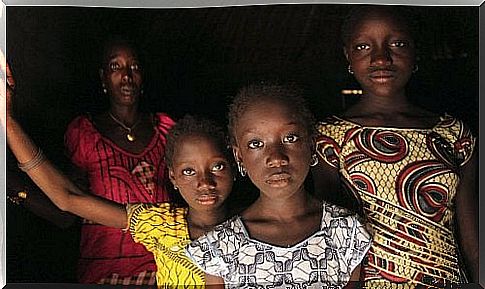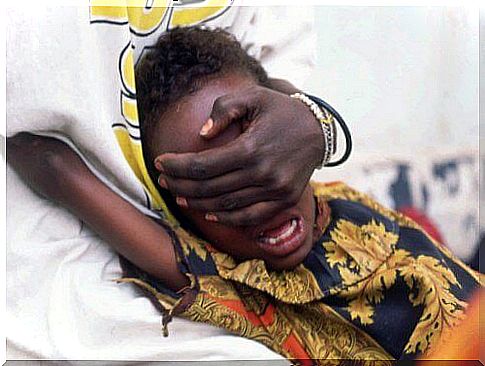Big News: Africa Says NO To Female Genital Mutilation
The problem with female genital mutilation is awareness, and the fact that many people think it is a necessary practice for women are accepted by the communities.

The African Parliament reached an agreement in August to finally ban this ritual, tragic and discriminatory practice.
It has not been long since we explained to you that in countries like Nigeria, we had taken the initiative to regulate and continue this tradition.
Today this little grain of sand is bigger and bigger and full of hope because it has more support.
We finally came to a common agreement where the African Parliament, whose seat is in South Africa, undertook to regulate, to continue and to put an end to this tragedy which today affects almost 200 million women in the world. worldwide, according to UNICEF data.
In this article, we’ll give you all the details.
Female genital mutilation, a drama that has claimed too many victims
Genital mutilation is not a problem that comes only from Africa, far from it. Clitoral ablation is also present in all Muslim countries on the Asian continent.
Kurdish communities, as well as those in Afghanistan, Tajikistan, Malaysia and Indonesia also practice it. In these countries, there are even far more radical excisions.
Infibulation, which consists of the extirpation of the clitoris and the labia majora and labia minora.
We know this is a battle that is not ready to be won. We also know that this stage which takes place in Africa is for the moment only an agreement of intent which has yet to be ratified.
Because today we only have one proposal that has not yet been translated into the legal body.
However, as we said, it is a big step in the face of a scourge that has affected far too many victims.
This is not a ritual practice, it is a violation of human rights
Female genital mutilation is part of what is known as a ritual of initiation of little girls into the fertile or mature age.
- It is often said that it originates from Ancient Egypt. However, this practice also has different antecedents in Asia, Europe, Oceania and even America.
- So, and even if today it is closely linked to the Muslim world, in the past, it was also practiced among animist peoples, Muslims, Christians or Jews.
- Anyway, today it continues to exist and it is a brutal act which seeks above all to deprive women of their sensitivity or their sensations of pleasure.
- The way of performing this excision has not changed since Antiquity. The clitoris is mutilated with glass, knives or razors.
The hygienic measures are not maximum. The danger of infection is therefore extremely high. The human losses due to this practice are too numerous.
All of this reality brings us to a clear conclusion. It is not a ritual practice. It is a violation of human rights. It is an incomprehensible and savage act that millions of little girls suffer from, even before their fifth birthday.

An agreement and hope against female genital mutilation
Africa has said NO to female mutilation and everyone has welcomed the news. However, you have to look at the details.
- The agreement was reached after very long negotiations between the Convention on the Elimination of All Forms of Discrimination against Women (CEDAW, to use its acronym) and the social and political groups of the continent.
- They could also count on the support of the United Nations Population Fund (UNFPA).
- The agreement that has been reached is a program of action.
- The 250 signatory deputies of the African Parliament have the obligation to start the formal mechanisms of this program.
- We are trying to create coordination channels with national and local authorities. In this way, the health services will require all families to give up in writing the removal of their daughters.
- Almost 90% of this practice is found in the following countries: Egypt, Sudan, Eritrea, Djibouti, Ethiopia and Somalia. We therefore expect a change of consciousness and a real awareness.
An uphill battle against genital mutilation that will take time

The goal is to achieve the same success as in Nigeria. However, the signatory authorities are aware of the difficulty it represents.
Some countries, like Guinea, even if they said “no”, continue to practice it. And she does it for a very concrete reason.
- Many men and women believe that genital mutilation is necessary to be accepted in the community.
- All of this forms a social reality that is very difficult to change, as complex as it is difficult.
However, as humanitarian organizations tell us, the shift in consciousness comes little by little. So much so that many believe that in a few decades we will finally succeed in eradicating female genital mutilation.
Hopefully it will turn out like this!









